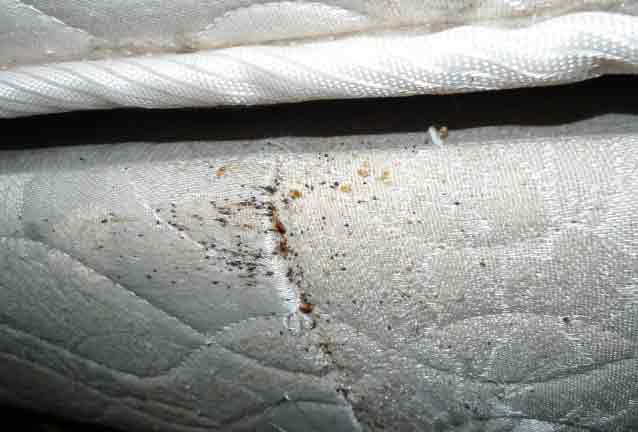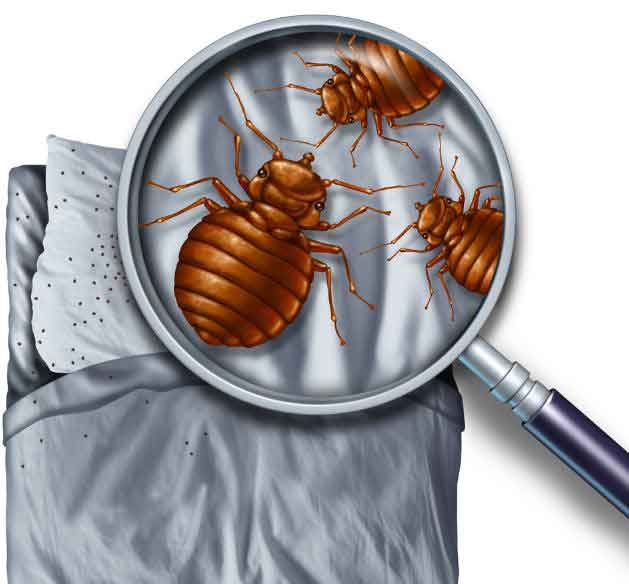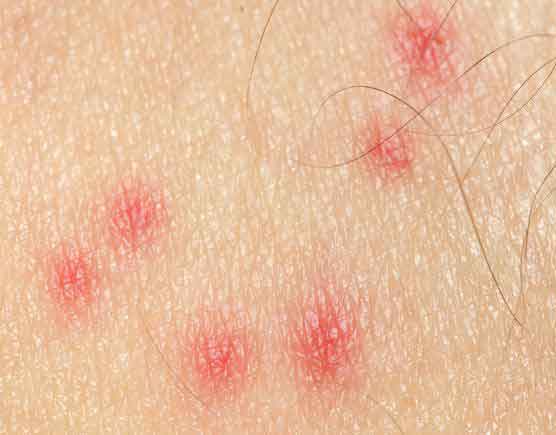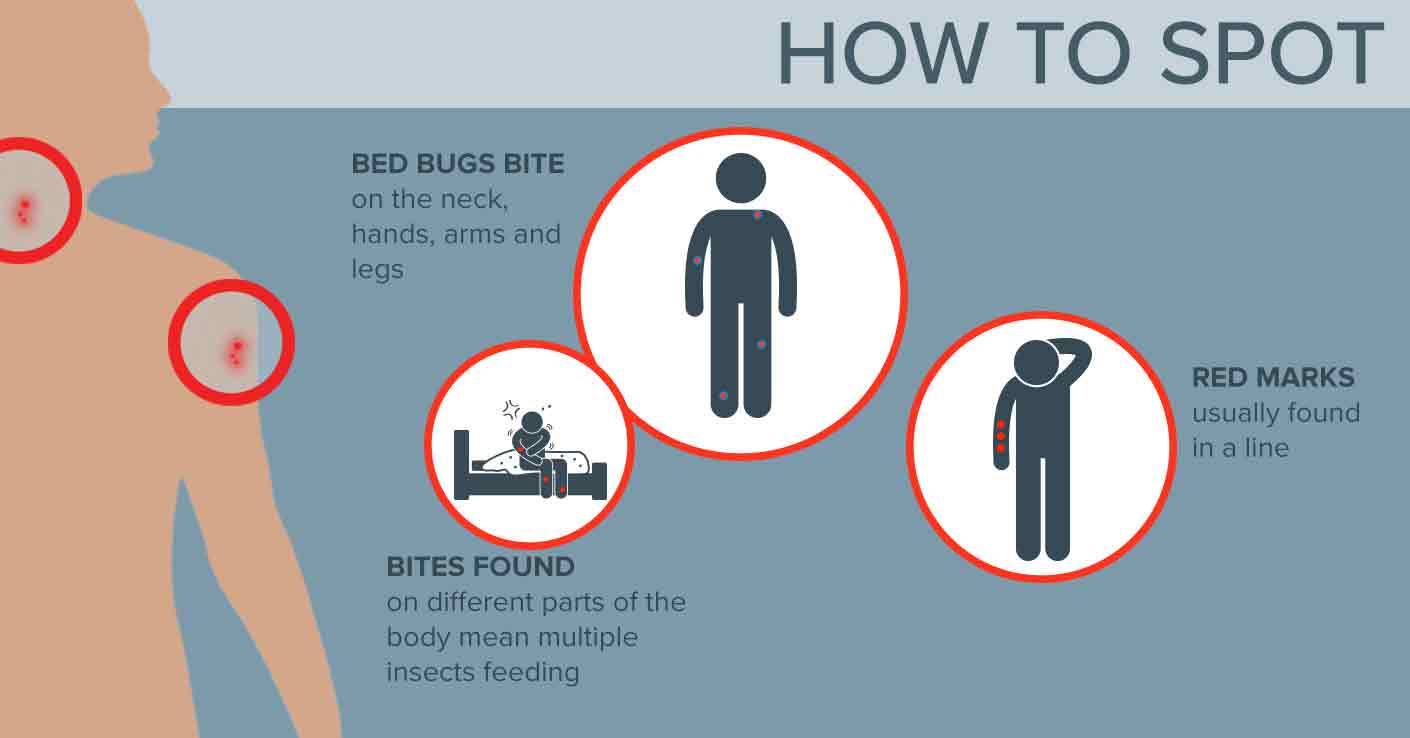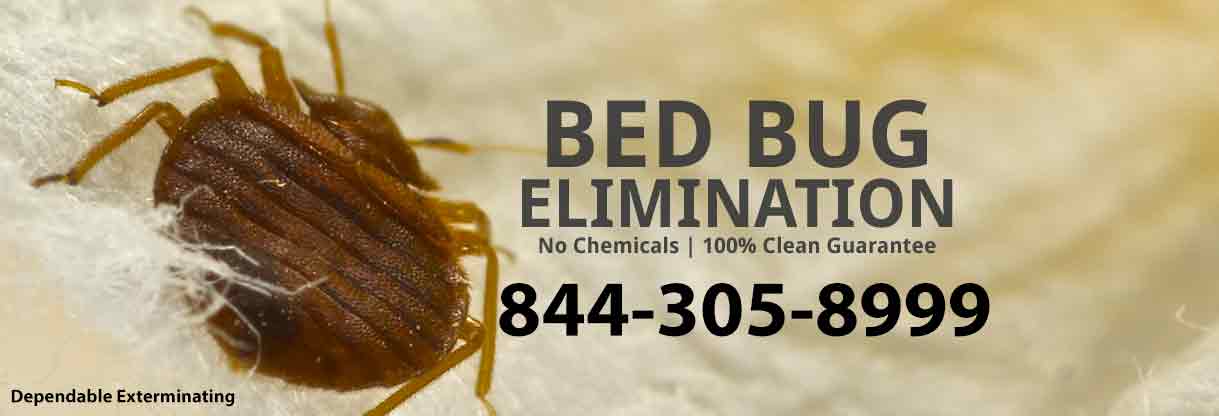
Our Bed Bug Exterminator will identify the source of the Bed Bug infestation & create a customized treatment plan to eliminate the pests. Let us be your Bed Bug Control Exterminator, give us a call today 1-844-305-8999.
Bed Bug Detection
Research has indicated that one of the most effective tools for detecting low level bed bug infestations may be interception devices. These devices are designed to catch bed bugs as they travel to and from a bed by trapping them as they naturally more around the environment. Preliminary indications that the best bed bug interception devices on the market can detect 80% or more of low level bed bug infestations within 1-2 weeks of being placed under the legs of beds and couches. Our Bed Bug Exterminator will install Bed Bug interception devices that are an exceptional Bed Bug Control solution.
Bed Bug Identification
Bedbugs are small, flat, wingless insects with six legs that feed on blood from animals or people. They range in color from almost white to brown, but they turn rusty red after feeding.
The common bedbug doesn't grow much longer than 0.2 inches (0.5 centimeters) and can be seen by the naked eye to the astute observer. Bedbugs get their name because they like to hide in bedding and mattresses. Pictured right is an excellent Bed Bug Identification chart.
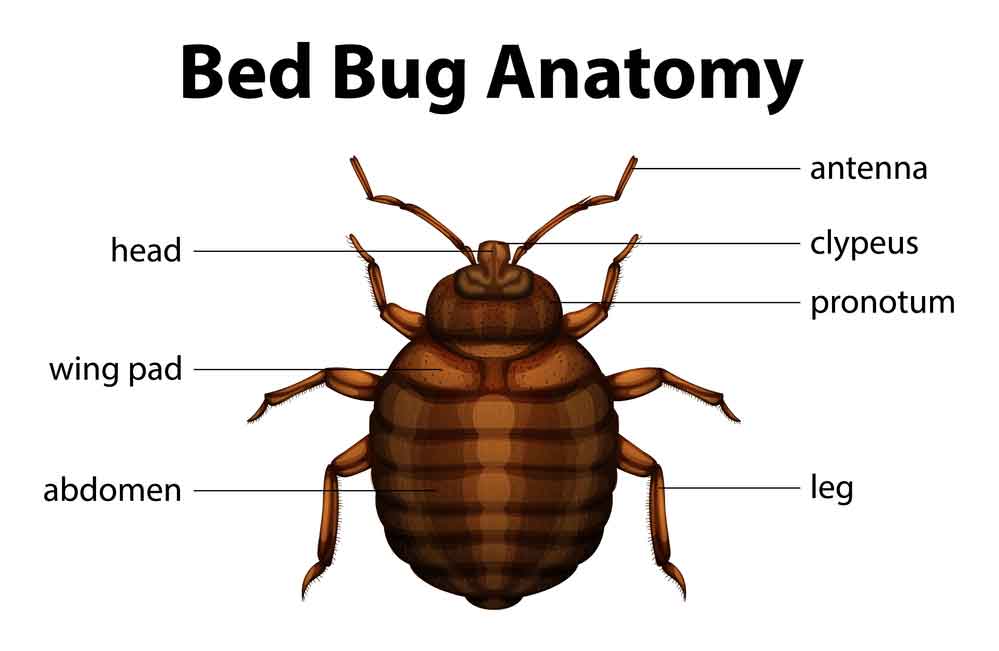
Here are some valuable tips to ensure "bed bug proof" travel!
Call up the hotels that you are interested in and ask if they use anti-bed bug mattress encasements and how often they use a Bed Bug Exterminator.
- Look up your location of interest or hotel address for any recent bed bug reports. This can be found online at sites such at bedbugregistry.com.
- Bed bug tips before leaving your house:
- Pack using a top quality luggage liner for easier bed bug identification.
- Pack everything in bed bug free luggage liners.
- Pack a small flashlight to be better able to search for indications of bed bugs.
- Pack an anti-bedbug laundry bag and keep your clothes from exposure to the floor.
- Pack a bed bug proof travel pillow & cover in your carry on.
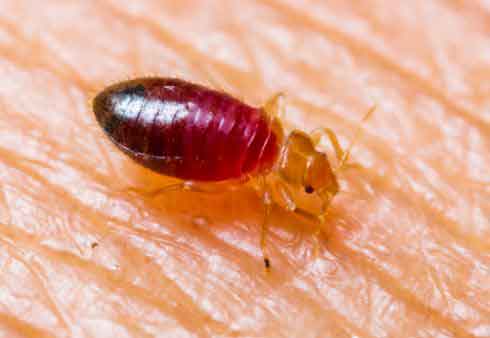
Bed Bug Q & A
Q. Do bed bugs spread disease?
A. Bed bugs should not be considered as a medical or public health hazard. Bed bugs are not known to spread disease. Bed bugs can be an annoyance because their presence may cause itching and loss of sleep. Sometimes the itching can lead to excessive scratching that can sometimes increase the chance of a secondary skin infection.
Q. What health risks do bed bugs pose?
A. A bed bug bite affects each person differently. Bed Bug Bites responses can range from an absence of any physical signs of the bite, to a small bite mark, to a serious allergic reaction. Bed bugs are not considered to be dangerous; however, an allergic reaction to several bites may need medical attention.
Q. What are the signs and symptoms of a bed bug infestation?
A. One of the easiest ways to identify a bed bug infestation is by the tell-tale bite marks on the face, neck, arms, hands, or any other body parts while sleeping. However, these bite marks may take as long as 14 days to develop in some people so it is important to look for other clues when determining if bed bugs have infested an area. These bedbug infestation signs include:
- the bed bugs exoskeletons after molting,
- bed bugs in the fold of mattresses and sheets
- rusty–colored blood spots due to their blood-filled fecal material that they excrete on the mattresses or nearby
furniture
- a sweet musty odor.


